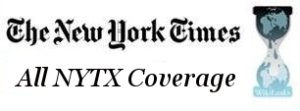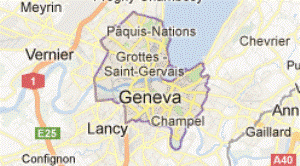EUROPE » GENEVA DATELINE
Close the Straits?
April 3, 2014 · 4 Comments

Above: Otto von Bismarck (Image from Wikimedia Commons)
By Matthew Stevenson:
There are bound to be noisy recriminations over “who lost Crimea.” But there was probably not much the West could have done, given the chaos and disunity in Ukraine and the absence of credible levers.
—“Post-Crimea Relations With the West”
By THE EDITORIAL BOARD The New York Times
March 18, 2014In private moments, administration officials recognize that the chances of prying Crimea loose from Russia are minimal and that the real question is whether the West can stop Mr. Putin from destabilizing or even trying to take control of eastern Ukraine.
—Peter Baker NYT
March 18, 2014
Despite threats from President Obama and the members of the European Union (EU) of additional economic sanctions against Russia, President Putin seems determined, as Adolf Hitler would have said, to “finish” with the Ukrainians and absorb elements of Eastern Ukraine into Mother Russia.
In Putin’s mind, neither Barack Obama nor the EU’s foreign minister, Lady Catherine Ashton, is up for the Bismarckian game of power politics, in which war is the chosen instrument of statecraft to pull together a disparate nation-state.
At the cost of frozen relations for a generation over the lost provinces of Alsace and Lorraine, Bismarck transmuted Prussia into Germany with victories, respectively, over the Austrians and the French at Sadowa (1866) and Sédan (1871).
Putin seeks the same resolution for his own fragmented empire, perhaps down the road with a blitzkrieg envelopment of such Eastern Ukrainian cities as Donetsk or Kharkiv. Maybe, like Bismarck, he will ride to the front with his troops and accept Ukraine’s surrender in person? He might like that.
An indication that the crisis will not go away, despite Foreign Minister Sergei Lavrov’s collegial hook up with Secretary of State John Kerry in Paris, is the stated Russian position that Ukraine’s future must rest on federalism.
In other words, to keep the Russian bear from the Kiev front door, Ukraine needs to subdivide itself into constituent parts, including a good-to-go republic in Eastern Ukraine that later can be prompted to petition—as if latter-day Sudeten Germans—to join the Russian federation.
Not since the Saar voted to join Germany in 1935 has Europe had so many plebiscites, which are best understood as elections featuring pre-stuffed ballot boxes.
In responding to the Russians, above all Messrs. Obama and Kerry want to appear “statesmen-like” and aligned, as they have said repeatedly, with “the right side of history.” Presumably that alludes to Western Europe’s collective liberalism, not the East’s fondness for purges, pogroms, and ethnic cleansing.
The problem with history in Eastern Europe is that nearly every square inch of territory in the last hundred years has seen multiple landlords, making it easy for any group to pose as an aggrieved minority and victim of aggression.
For example, in the last century the weird nether-world enclave of Transnistria (between Moldova and Ukraine, but held by the Russians, and soon a plebiscite coming to your evening news) has been Bessarabian, Romanian, Russian, German, Soviet, Moldovan, and Ukrainian. In general, the right side of history there means anything not associated with rape and plunder.
* * *
If the Kremlin decides to intervene militarily, General Breedlove added, the force could be used to establish a land link to Crimea, the peninsula in southern Ukraine that Russia annexed last month, so that it does not have to supply it by sea. The Russian force is also capable, he said, of carrying out a thrust to Odessa; moving to Transnistria, the Russian enclave in Moldova; or intervening in areas in eastern Ukraine.
— “NATO Commander Says He Sees Potent Threat From Russia”
By Michael R. Gordon NYT
April 2, 2014
If Kerry’s goal in Paris was to get the Russians to renounce an immediate invasion of Eastern Ukraine, Lavrov’s more subtle position was to state, in seemingly bland diplomatic language, not that the Russians have given up on Donetsk but the terms that will govern an eventual Anschluss.
Nor have the Russians seen anything in the U.S. response to the Crimean crisis that should give them pause to stay out of Eastern Ukraine or the other flash points.
In Crimea, the best that the western allies could muster was an oldies medley of travel bans, asset freezes, blackballings from international organizations, such as the G8, and threats of “additional sanctions,” should the Russians keep acting like Catherine the Great.
With Crimea safely locked away with the Kremlin jewels, President Putin may have found it comforting to have studied President Obama’s travel schedule on his recent whirlwind around Europe, ending with an audience at the Vatican with Pope Francis.
Watching Obama accept the pontiff’s primetime absolutions, did Putin whisper to himself, as earlier did Josef Stalin, “How many divisions does the pope have anyway?”
Despite the grave international situation, the American president stuck to his prescribed European grand tour that included a “working dinner” with the Dutch King Willem-Alexander, what the White House schedule calls the taking of a “family photo” with the leaders a nuclear summit, an excursion to the Western Front, and a “meet and greet” with the embassy staff in Brussels.
All good things to do on a slow weekend in the Low Countries, but during a crisis? I have a hard time imaging President John F. Kennedy during the Cuban Missile Crisis saying to his aides, “Let’s get up a dinner with the Dutch king.”
Yes, President Obama gave one of those “we stand by our allies” speeches in Brussels (“Ich bin ein Latvian”). But the Russians may have list of former U.S. allies (the Syrian opposition, Afghan democrats, Egypt’s Tahrir Square movement, Iraqi translators and drivers, etc.) that are having hard time redeeming their coupons to live out the American dream.
* * *
A day after the Russian leader Vladimir V. Putin proposed to President Obama that they boost attempts to resolve their standoff over Ukraine, Secretary of State John Kerry scrambled his travel plans to meet with his Russian counterpart in Paris on Sunday, according to a State Department official.
— “As Diplomacy Steps Up, Ukraine Candidates Narrow”
By NEIL MacFarquhar and Andrew Roth NYT
March 29, 2014
One reason the Obama administration finds itself incapable of coherent action in the Ukraine crisis is that its triumvirate—Messrs. Obama, Biden, and Kerry—are former senators and genetically bred for perpetual motion, lofty pronouncements, sound-bitable phrasing, economic sanctions, and then moving on to solicit the next big campaign donor.
In the case of President Obama, after little more than 24 hours in European war cabinets, he left town to make nice to Abdullah of Saudi Arabia (who in his governmental practice makes Putin, by comparison, look like Patrick Henry). I assume the thrall of the Saudis is that they feel like campaign contributors.
Thinking the world is as obsessed as they are about raising money, senators love the aura of sanctions. They sound great in press releases and constituent letters.
No votes need to be taken to put them in place, and now they can be targeted not just against rogue states or terrorist organizations, but individuals, such as the Russian oligarchs that fund the Putin regime. Sanctions have become the financial equivalent of drones.
But does anyone seriously think they will keep anonymous freedom fighters (and their ill-fitting ski masks) out of the Ukraine, when the time comes for Moscow to show solidarity with trodden czarist sons in Kharkiv?
No doubt Putin will choose to continue the current crisis around Ukraine because he is convinced neither President Obama nor the EU will do anything more than tweet about the community of nations or Ukraine’s “territorial integrity.”
Another example: on the first weekend after Crimea erupted, President Obama stuck to his schedule of golfing in the Florida Keys while Vice President Biden went off on a holiday to the Virgin Islands. Maybe that’s what Teddy Roosevelt had in mind when he said, “Speak softly and carry a big stick; you will go far.”
* * *
The only messages that will get Putin’s attention in the current crisis are those that show the West is prepared to act against Russian aggression, not simply mail in its sanctions press release.
For example, Putin would take notice if the EU voted to admit Turkey for membership in exchange for closing the Bosphorus Straits to Russian shipping—something NATO’s combined navies could easily enforce.
What good is it for Russia to have a Black Sea fleet in the warm waters of Sebastopol if all their dreadnoughts could do was show the flag to the Georgian or Bulgarian navies?
A less Churchillian response to the Russian aggressions would be to declare open season for outside powers to support their own “oppressed” minorities within the Russian Federation.
Despite the impression that Russia is as ethically homogeneous as, say, Japan, a better way to understand the federation is as the Yugoslavia of the twenty-first century.
Like Slobodan Milosevic before him, Putin is a former Communist war horse who champions the nationalist cause of disenfranchised Russians cut adrift after the dissolution of the Soviet Union (Yugoslavia on a grander scale, but with the same hodgepodge ethnicity and borders, as one writer said, “floating on blood”).
With the Soviet devolution, Russians became a lost tribe of the Cold War, stranded with few rights and much contempt in places like Ukraine, Moldova, Kazakhstan, Uzbekistan, and Latvia. Putin is their guardian angel, and much history is on his side. Ukraine is to Russia what Virginia is to the United States.
* * *
Much more than economic isolation—after all, the Soviet Union was isolated from the Western economies for about 75 years—what Russia dreads internally is its own ethnic pots boiling over, as has been happening since the 1990s in Chechnya.
While there is a rationale for Putin speaking up for the lost rights of the Russian diaspora, the last thing he needs, in exchange for making Donetsk a “free city,” is a Muslim Risorgimento in Tatarstan, Chechen agitation in the Caucasus, a separatist movement in Siberia, or even rebellion from the 2 million Ukrainians living inside Russia.
Like Yugoslavia, Russia has a lot it can lose in playing the nationalist card, because it risks a series of border wars if it tries to impose Greater Russia not just on gleeful former citizens, but on less enthusiastic minorities, who want nothing to do with a Soviet restoration.
Maybe if Western leaders did more than pose for “family photos”, they could apply leverage from the fact that, in attacking Ukraine to champion the rights of an aggrieved minority, Russia is also pointing the guns at itself.
Matthew Stevenson, a contributing editor of Harper’s Magazine, is the author of Remembering the Twentieth Century Limited, a collection of historical travel essays. His new book, Whistle-Stopping America, was recently published. He first traveled to the former Soviet Union in 1975, and over the years has been to many of its then-constituent parts, often by train.
By admin
Readers Comments (4)
Sorry, comments are closed on this post.










Oh dear, I guess Matthew’s Chinese girlfriend has stood him up. How else would he have found the time to pound out this oleo of confusion about the Ukraine crisis? I wonder if he has forgotten, or never was informed, that it was the US and its NATO wannabes that created this mess in the first place? Putin, like the president of Syria, is only doing his job to protect his nation from foreign aggression.
Gene, alas, no Chinese girlfriend, but 27 hours on the train to Chengdu. The US and NATO the aggressors in Crimea? Hardly. Perhaps in 1854? By the way, you might think of letting your subscription to Pravda lapse, as I think you are getting your issues about 30 years later.
Too bad about the Chinese girlfriend Matthew. I guess it must have been 27 hours on the Chinese train that distorted your vision. That ride must have been a bit like Chinese water torture?
I think the historian in you also may have prevented your reading of the present. It has been well documented that the US and NATO (via Ms. Nulands) stirred up the uprising in Ukraine in order to drag it into NATO, thus depriving Russia of its naval base and surrounding it with missile bases. Mr. Putin very cleverly finessed that move.
Even 30 years late, my Pravdas provide more truth than today’s New York Times.
The second you mentioned Pope Francis I saw the Stalin “divisions” quote coming, but I didn’t see the “Ich bin ein Latvian” on the way. Annexing Turkey and closing the Straits? An intriguing diplomatic response, but is Crimea worth the bones of a Pomeranian grenadier?